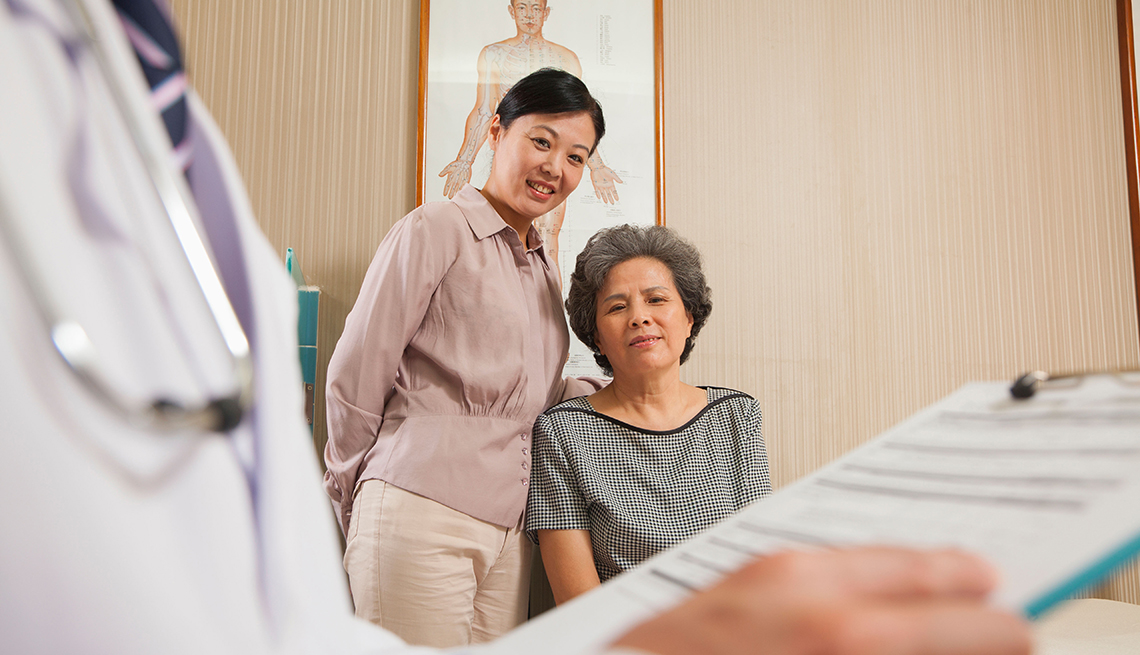Staying Fit
En español | When my 83-year-old mother's primary-care doctor asked her if she'd had any recent falls, she didn't hesitate: "Oh, no."
But I knew better. "Uh, yes, she did!" I interjected.


AARP Membership— $12 for your first year when you sign up for Automatic Renewal
Get instant access to members-only products and hundreds of discounts, a free second membership, and a subscription to AARP the Magazine.
"No, I didn't!" my mother shot right back. Then she fixed her doctor with a stare and said, "Whose appointment is this — his or mine?"
Her doctor squirmed uncomfortably on his stool.
My mother and I generally cooperate during these medical visits, which I've accompanied her to for the last three years or so. But sometimes we run into disagreements. I didn't enjoy ratting her out on this occasion, but I felt it was my job to disclose her balance problems; how could her doctor help unless he knew about them? Still, there was fallout: an irate mother, an irritated son.
This is one of the many challenges that concerned caregivers face when they "audit" the medical visit of an aging adult. Most guides to the subject advise caregivers on what to bring (medication lists, questions, notepad and pencil) and which roles they should play (clarifier, interpreter, recorder). But they steer clear of the awkwardness of injecting oneself into the doctor-patient relationship. Now, however, these interpersonal difficulties are addressed head-on in a new guide from the United Hospital Fund of New York.
The Family Caregiver Guide to Doctor Visits draws on gerontologist Jennifer Wolff's research on "medical visit companions." It offers advice for three phases of an accompanied doctor visit:
Before the visit
The caregiver and aging adult should strategize about what they want to accomplish during their meeting with the physician: Are you seeking information about medication side effects or the outcomes of prescribed treatments? Do you plan to report new symptoms or concerns? Or is your goal merely to ask questions about general health and lifestyle issues?

































































